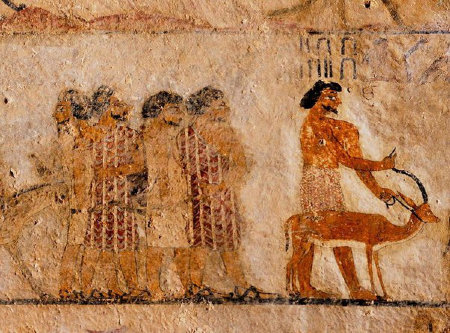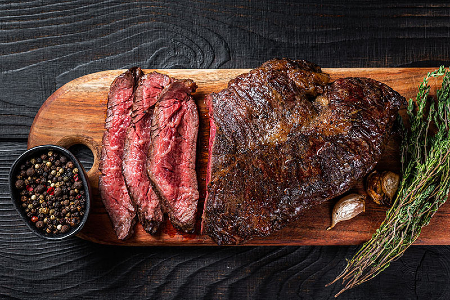We ask you, humbly: don't scroll away.
Hi readers, it seems you use Catholic Online a lot; that's great! It's a little awkward to ask, but we need your help. If you have already donated, we sincerely thank you. We're not salespeople, but we depend on donations averaging $14.76 and fewer than 1% of readers give. If you donate just $5.00, the price of your coffee, Catholic Online School could keep thriving. Thank you.Help Now >
Pride
FREE Catholic Classes
Pride is the excessive love of one's own excellence. It is ordinarily accounted one of the seven capital sins. St. Thomas, however, endorsing the appreciation of St. Gregory , considers it the queen of all vices, and puts vainglory in its place as one of the deadly sins. In giving it this pre-eminence he takes it in a most formal and complete signification. He understands it to be that frame of mind in which a man, through the love of his own worth, aims to withdraw himself from subjection to Almighty God , and sets at naught the commands of superiors. It is a species of contempt of God and of those who bear his commission. Regarded in this way, it is of course mortal sin of a most heinous sort. Indeed St. Thomas rates it in this sense as one of the blackest of sins. By it the creature refuses to stay within his essential orbit; he turns his back upon God, not through weakness or ignorance, but solely because in his self-exaltation he is minded not to submit. His attitude has something Satanic in it, and is probably not often verified in human beings . A less atrocious kind of pride is that which imples one to make much of oneself unduly and without sufficient warrant, without however any disposition to cast off the dominion of the Creator. This may happen, according to St. Gregory, either because a man regards himself as the source of such advantages as he may discern in himself, or because, whilst admitted that God has bestowed them, he reputes this to have been in response to his own merits, or because he attributes to himself gifts which he has not; or, finally, because even when these are real he unreasonably looks to be put ahead of others. Supposing the conviction indicated in the first two instances to be seriously entertained, the sin would be a grievous one and would have the added guilt of heresy. Ordinarily, however, this erroneous persuasion does not exist; it is the demeanour that is reprehensible. The last two cases generally speaking are not held to constitute grave offences. This is not true, however, whenever a man's arrogance is the occasion of great harm to another, as, for instance, his undertaking the duties of a physician without the requisite knowledge. The same judgment is to be rendered when pride has given rise to such temper of soul that in the pursuit of its object one is ready of anything, even mortal sin. Vainglory, ambition, and presumption are commonly enumerated as the offspring vices of pride, because they are well adapted to serve its inordinate aims. Of themselves they are venial sins unless some extraneous consideration puts them in the ranks of grievous transgressions. It should be noted that presumption does not here stand for the sin against hope. It means the desire to essay what exceeds one's capacity.
Join the Movement
When you sign up below, you don't just join an email list - you're joining an entire movement for Free world class Catholic education.
-

-
Mysteries of the Rosary
-
St. Faustina Kowalska
-
Litany of the Blessed Virgin Mary
-
Saint of the Day for Wednesday, Oct 4th, 2023
-
Popular Saints
-
St. Francis of Assisi
-
Bible
-
Female / Women Saints
-
7 Morning Prayers you need to get your day started with God
-
Litany of the Blessed Virgin Mary
Biblical Lost Alphabet Traced Back to Ancient Canaanite Civilization
-

What are the Health Benefits of Grass-Fed Beef for Your Body and Mind?
-

Rise Above Poverty is Empowering Children and Families Through Education and Compassion
-
Artists and Leaders Rally to Preserve the Traditional Latin Mass
-
Republicans Demand Answers Over Army Training Slide Labeling Pro-Life Groups as Terrorist Threats
Daily Catholic
 Daily Readings for Wednesday, July 24, 2024
Daily Readings for Wednesday, July 24, 2024 St. John Boste: Saint of the Day for Wednesday, July 24, 2024
St. John Boste: Saint of the Day for Wednesday, July 24, 2024 Prayer for Travelers: Prayer of the Day for Wednesday, July 24, 2024
Prayer for Travelers: Prayer of the Day for Wednesday, July 24, 2024- Daily Readings for Tuesday, July 23, 2024
- St. Bridget of Sweden: Saint of the Day for Tuesday, July 23, 2024
- A Child's Prayer to Mary: Prayer of the Day for Tuesday, July 23, 2024
![]()
Copyright 2024 Catholic Online. All materials contained on this site, whether written, audible or visual are the exclusive property of Catholic Online and are protected under U.S. and International copyright laws, © Copyright 2024 Catholic Online. Any unauthorized use, without prior written consent of Catholic Online is strictly forbidden and prohibited.
Catholic Online is a Project of Your Catholic Voice Foundation, a Not-for-Profit Corporation. Your Catholic Voice Foundation has been granted a recognition of tax exemption under Section 501(c)(3) of the Internal Revenue Code. Federal Tax Identification Number: 81-0596847. Your gift is tax-deductible as allowed by law.









 Daily Readings for Wednesday, July 24, 2024
Daily Readings for Wednesday, July 24, 2024 St. John Boste: Saint of the Day for Wednesday, July 24, 2024
St. John Boste: Saint of the Day for Wednesday, July 24, 2024 Prayer for Travelers: Prayer of the Day for Wednesday, July 24, 2024
Prayer for Travelers: Prayer of the Day for Wednesday, July 24, 2024

